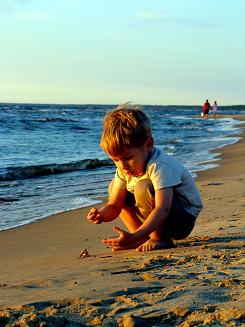The impact on children of divorced/divorcing parents is  devastating regardless of age; however, depending on age, the impact and ways of handling the fall-out can and should vary. Despite age, children suffer many stressors upon the divorce of their parents. Children cannot always comprehend how divorce will affect them and how their lives may change, which can cause them to feel off-balanced and frightened concerning their future.
devastating regardless of age; however, depending on age, the impact and ways of handling the fall-out can and should vary. Despite age, children suffer many stressors upon the divorce of their parents. Children cannot always comprehend how divorce will affect them and how their lives may change, which can cause them to feel off-balanced and frightened concerning their future.
Many times children will have less contact with one parent or the other, typically the father. They may have to split their time between two homes. Worse yet they may be forced to move from the comfort of their home due to financial difficulties that parents may encounter. This might even involve a change of schools, which is always stressful for kids even under the best of conditions. They may find themselves laden with more responsibility.
Behavioral changes are bound to occur. Here are some examples:
- Self-blame
- Emotional neediness, particularly preschoolers
- Withdrawal and/or anxiousness (girls)
- Disobedience and aggression (boys)
- Drop in school grades
Children can continue to have long-term adjustment problem if parents continue battling long after the divorce proceedings are over. Parents, who can control their own emotions and keep disagreements to a minimum, will find that their children will also roll better with their new lifestyle.
Many children fantasize about a possible reunion of their parents. This is a notion that certainly shouldn’t be coddled if there is indeed no hope for reconciliation. The sooner children recognize that the divorce is a fact, the sooner they can get on to the business of adjusting.
While most children eventually adjust to the trauma of divorce, it can sometimes even affect their adult lives. While it may well be out of the parents ability by that time, it would behoove parents to carefully consider how they will help their children adjust during this very difficult time in their lives.
Here are some coping mechanisms you may find helpful:
- Make sure you are available to answer your child’s questions.
- Before the split, arrange to have a discussion with your children in age appropriate terms.
- Read books together with your children on the subject of divorce; again age appropriate reading.
- Assure your children, over and over again if necessary, that they are not the reason for your divorce.
- Always put your children’s needs before your own.
- Do not expect your children to comfort you; this is an uncalled for burden for any child.
- Your children should not be exposed to your arguments.
- Parental consistency is a must.
- Do not criticize the other parent in front of the children.
- Above all, make sure that your children understand that you will always love them.
If necessary, do consider professional counseling for your children. Sometimes an objective outsider can accomplish what you cannot. Make sure that you instruct family members on how you want your children to be handled during this time. Keep in mind that they also can contribute to the support and help provide the extra tender care your children need as they go through this rough patch in their lives.
The Cantor Law Group is a Family Law Firm in Phoenix, AZ. Please see our website for more information on family law matters like child custody and support: Cantor Divorce Lawyers.
 Posts
Posts
Divorce can certainly be hard on children, but often when parents stay together for ‘the good of the children’ they are missing something. The ongoing stress of being with parents who are fighting or chronically unhappy is awful. When my mother came to me and said that she and my dad were getting a divorce, I responded “It’s about time.” and I felt relieved. Sure, the logistics were harder with my parents in different places. But the relief from constantly living in their stress was worth it. As I’ve talked with many adults about their parents’ relationship, it’s become clear to me that this relief when parents get divorced is far from uncommon.